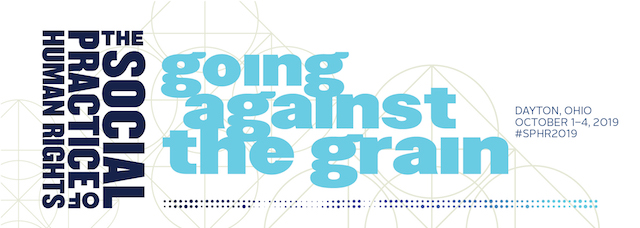Paper/Proposal Title
International Surrogacy Arrangements: A Human Rights Case
Location
Tech and "Human" Rights
Start Date
10-4-2019 8:30 AM
End Date
10-4-2019 10:00 AM
Keywords
Human Rights Law, Feminism, Surrogacy, ISA, Private International Law
Abstract
The scientific development in Artificial Reproductive Technology (ART), especially IFV solutions, are promoting the development of our reproductive options. Surrogacy is now one of these solutions and new ethical and legal problems arise.
Domestic Laws have the most different positions. If there are countries that admit surrogacy arrangements, even commercial ones like the Florida State in the USA (and the particular case of India); others criminalize these procedures and others, like the UK (and Portugal), have a middle term position.
Considering the frontier zone in which surrogacy takes its place, the debate is more exuberant since the concrete legal solution have a strong social impact, and arises heated and controversial positions.
The International Surrogacy Arrangements (ISA) exacerbates the problem, mainly considering State’s international public order. The global setting, the different social classes, the cultural frameworks and different legal systems, that can even be straightforwardly incompatible, of the surrogate and the intended parents determine a particularly vulnerable arrangement. The lack of regulation, or lack of knowledge about regulation, introduces a condition of uncertainty into the contract. It produces children whose legal status and citizenship may be uncertain.
However, there are justifications for recourse to a transnational gestation. Whether legal options in countries, whether prohibited or not, discrimination or social or cultural issues can move people across borders, promoting ISA market in the so-called IVF holidays.
The legal challenges and uncertainties that ISA can create when families seek to return home with their child suggest the ongoing need to examine whether and how a more cohesive and predictable international framework might be created considering, at the same time, the respect of the different values and reproductive policies of the countries.
In July 2011, the Council on General Affairs and Policy of the Hague Conference on Private International Law instructed its Permanent Bureau to consider the sharp questions arising from international, cross-border surrogacy. No proposals have been suggest to date despite all of the herculean work done by the Expert Group of the Hague Conference.
Our main goal is to attempt to reach minimum consensus principles for cross-border surrogacy, mainly considering the human rights discussion, and a feministic approach to establish an international legal framework to promote, despite the domestic solutions, the international regulation of the ISA.
Author/Speaker Biographical Statement(s)
Marisa Almeida Araújo, Assistant Professor at Lusíada University – North (Porto), Portugal, Law School, Researcher at CEJEA
Included in
Civil Law Commons, Constitutional Law Commons, Contracts Commons, Human Rights Law Commons, International Law Commons
International Surrogacy Arrangements: A Human Rights Case
Tech and "Human" Rights
The scientific development in Artificial Reproductive Technology (ART), especially IFV solutions, are promoting the development of our reproductive options. Surrogacy is now one of these solutions and new ethical and legal problems arise.
Domestic Laws have the most different positions. If there are countries that admit surrogacy arrangements, even commercial ones like the Florida State in the USA (and the particular case of India); others criminalize these procedures and others, like the UK (and Portugal), have a middle term position.
Considering the frontier zone in which surrogacy takes its place, the debate is more exuberant since the concrete legal solution have a strong social impact, and arises heated and controversial positions.
The International Surrogacy Arrangements (ISA) exacerbates the problem, mainly considering State’s international public order. The global setting, the different social classes, the cultural frameworks and different legal systems, that can even be straightforwardly incompatible, of the surrogate and the intended parents determine a particularly vulnerable arrangement. The lack of regulation, or lack of knowledge about regulation, introduces a condition of uncertainty into the contract. It produces children whose legal status and citizenship may be uncertain.
However, there are justifications for recourse to a transnational gestation. Whether legal options in countries, whether prohibited or not, discrimination or social or cultural issues can move people across borders, promoting ISA market in the so-called IVF holidays.
The legal challenges and uncertainties that ISA can create when families seek to return home with their child suggest the ongoing need to examine whether and how a more cohesive and predictable international framework might be created considering, at the same time, the respect of the different values and reproductive policies of the countries.
In July 2011, the Council on General Affairs and Policy of the Hague Conference on Private International Law instructed its Permanent Bureau to consider the sharp questions arising from international, cross-border surrogacy. No proposals have been suggest to date despite all of the herculean work done by the Expert Group of the Hague Conference.
Our main goal is to attempt to reach minimum consensus principles for cross-border surrogacy, mainly considering the human rights discussion, and a feministic approach to establish an international legal framework to promote, despite the domestic solutions, the international regulation of the ISA.



